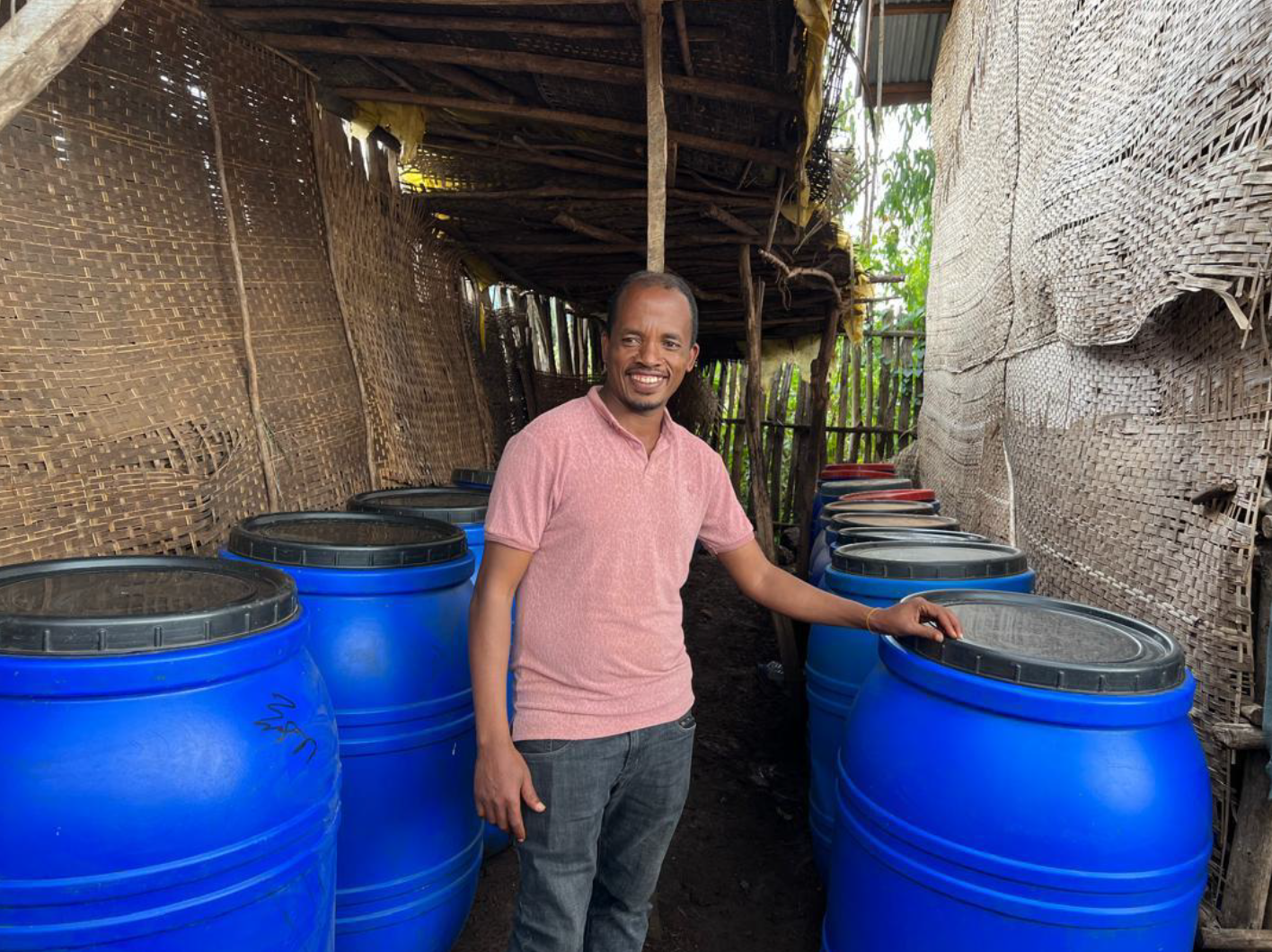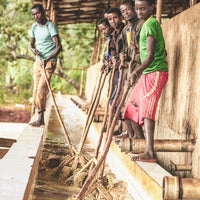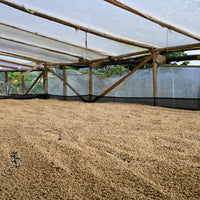Origin : Ethiopia
Region: Debo village, Kochere, Gedeo
Altitude: 1960 meters above sea level
Producer: Girma Bekele
Variety: Karume
Process: Carbonic Maceration
Tasting Notes: Light and boozy with notes of purple wine gums, jasmine and strawberry.
Girma Bekele is one of the few young coffee farmers in the Jabanto Coffee Farmers Business Group. While many in his generation show little interest in coffee farming—often aspiring to urban life after completing their education—Girma chose a different path. A trained healthcare professional and nurse, he made the bold decision to return to his rural roots rather than pursue a salaried career in the city.
Girma inherited 1.5 hectares of coffee farmland from his father in Debo village, located in Kochere County, Gedeo Zone. As an educated farmer, he applies modern and sustainable practices to improve coffee cultivation, processing, and environmental stewardship. His approach has led to significant improvements in yield, quality, and post-harvest handling. His income has steadily increased over the years, enabling him to reinvest in his farm by acquiring an additional 3.66 hectares of coffee land. Eager to innovate, Girma embraced the idea of experimenting with new coffee processing techniques. He chose to try natural anaerobic fermentation, also known as carbonic maceration. Remarkably, during his very first season using this method, his coffee earned a spot in the prestigious Cup of Excellence competition—ranking 40th among Ethiopia’s finest coffees. Girma’s journey reflects a promising shift: a new generation returning to farming not as a fallback, but as a forward-looking, professional pursuit.
Girma Bekele uses anaerobic fermentation to process ripe cherries from his farms. The cherries are placed in sealed plastic barrels with a one-way valve that releases gas produced during fermentation while preventing oxygen from entering. In this oxygen-free environment, naturally occurring microorganisms ferment the coffee by consuming the fruits’ sugars and releasing carbon dioxide. As the carbon dioxide pushes out any remaining oxygen, it creates different fermentation byproducts than those produced in aerobic conditions. This results in vibrant, bubblegum-like flavors––a supercharged version of the natural sundried profile found across the country. This kind of coffee is called natural anaerobic coffee.






